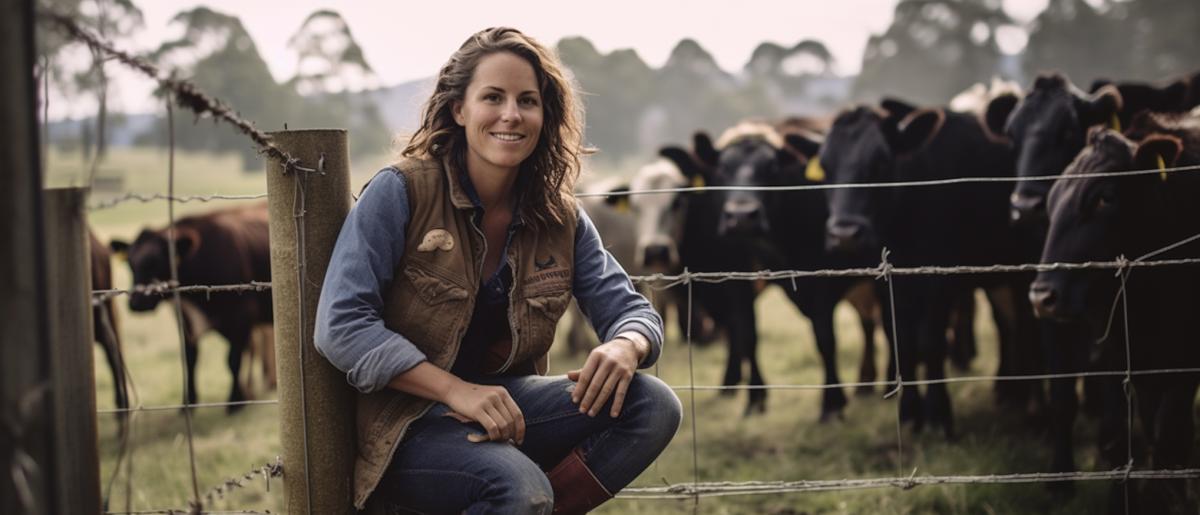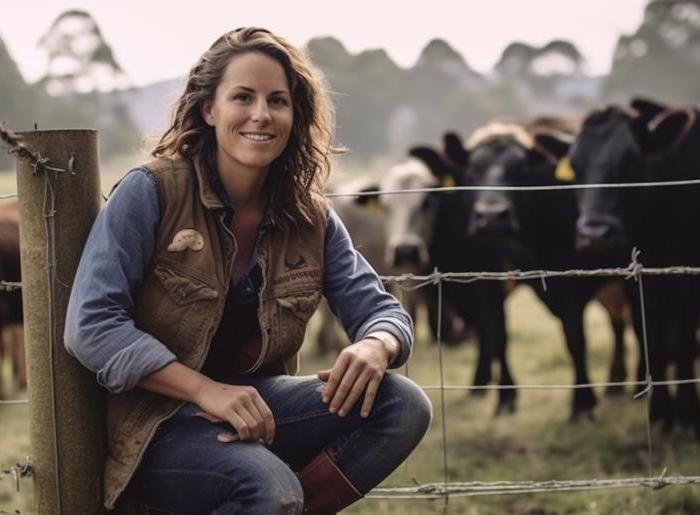

Farming livestock is an integral part of Australia's identity and economy. Financial readiness is pivotal for livestock farmers to prosper amidst fluctuating markets, unpredictable weather, and increasing operational costs. Business loans offer a lifeline through supportive reinforcement, enabling farmers to continue spearheading rural industries fearlessly. These finances become essential tools in driving steady growth in the livestock sector, fostering resilience in the face of adversity. Key investments empowered by these loans help fuel farm productivity, sustainability, and competitiveness in domestic and international markets, establishing a pathway for business expansion and profitability. Indeed, business loans act as catalysts, bridging the gap between financial constraints and the success of Australian livestock farming. Consequently, understanding the importance and effective utilisation of these loans becomes a cornerstone towards efficient farm management and wealth creation in the livestock sector. Let's delve into the world of business loans for livestock farmers in Australia.
Compare over 40+ lenders with one application.
Livestock farming forms a critical part of Australia's agricultural sector, contributing significantly to the country's economy. Its importance lies not just in the economic value, but also in the role it plays in assuring food security and rural development. Livestock farming helps sustain several regional and rural communities, often being the primary source of income, providing employment and supporting the livelihoods of numerous families. Regarded as one of the pillars of Australia's agri-business industry, livestock farming involves sheep, cattle, pigs, and poultry, serving both domestic and international markets. The robustness of this sector is evidenced by the consistent yield of high-quality meat, dairy, wool, and other by-products. By doing so, livestock farming aids in strengthening Australia's position in global export markets. Apart from commodity export, livestock farming also plays an essential role in contributing towards the sustainability of Australian landscapes. The farmers manage vast tracts of land across Australia and are often at the forefront of sustainable farming practises, maintaining the delicate balance between agriculture and environment. In essence, livestock farmers are key players in the Australian economy, food security, and environmental stewardship, thereby making their role indispensable. Business loans can enable these farmers with the necessary financial support to expand, innovate and improve their operations, positioning Australia as a global leader in sustainable and economically viable livestock farming.
Learn about eligibility and how to apply.
Managing livestock and running a farm business in Australia is not devoid of adversity. The challenges are multifaceted and can swiftly escalate from minor to pervasive, undermining the sustainability and productivity of these critical businesses. A recurring hurdle is the unpredictable Australian climate, interchanging between severe drought and intense floods. Such extremes can devastate grazing conditions, deplete water supplies, and negatively impact livestock health and reproduction. Another common challenge is market volatility. Shifts in supply and demand, price fluctuations, fluctuating input costs, and changes in international trade agreements can greatly influence profitability. Moreover, livestock disease outbreaks such as foot-and-mouth disease or avian influenza can lead to significant livestock loss and severe financial distress. Many are also faced with increasing regulatory burdens related to animal welfare, environmental conservation, and biosecurity controls. The complexity and cost of compliance can prove onerous for many livestock farmers. Lastly, maintaining the farm's infrastructure can demand considerable financial resources. From fencing to watering systems, sheds to loading facilities, the cost of infrastructure maintenance and upgrades are often steep. These challenges delineate the formidable landscape within which Australia's livestock farmers operate, indicating a clear need for financial support mechanisms to ensure ongoing productivity and viability. By considering a business loan, these industrious individuals may gain the necessary buffer to navigate these issues seamlessly, mitigating risk while optimising opportunities for growth.
Calculate your repayment estimates and more.
For Livestock Farmers in Australia, business loans prove to be an impactful solution to a multitude of challenges. More than just a financial asset, these loans enable farmers to capitalise on growth opportunities, streamline operations and ensure business sustainability. Business loans, for instance, can support farmers investing in efficient farming equipment that can streamline operations, reduce labour-intensive tasks, increase productivity, and drastically reduce operation costs in the long haul. On another level, business loans can offer a safety net against unpredictable contingencies. Given the fluctuating nature of the market and the vulnerable nature of livestock farming to weather conditions, unexpected costs can arise all too suddenly. Business loans provide that much-needed buffer to help farmers manage such uncertainties and focus on sustainability and growth. Lastly, business loans can be crucial for expansion. Whether it's acquiring more land, growing the livestock herds or diversifying into other profitable farming niches, access to additional funds affords farmers the freedom to take calculated risks and grow. It's an essential tool in a farmer's arsenal, transforming challenges into opportunities, and fostering a resilient and prosperous livestock farming sector in Australia.
Livestock farmers in Australia can secure different types of business loans to bolster their operations. Overdraft business loans are a popular choice, providing flexible access to funds for short-term needs. Term loans offer long-term financing for larger investments. Lastly, agribusiness line of credit can offer financial support for ongoing expenses.
There are several types of business loans in Australia that can benefit Livestock Farmers. Each of these loan types has its unique features, advantages, and potential disadvantages. Here are some of the most common types of business loans for Livestock Farmers:
Term Loan
A term loan is a fixed amount of money lent to Livestock Farmers for a set term. The farmer makes regular repayments till the loan is fully repaid. This type of loan is suitable for long-term investments such as farm expansion or machinery purchase.
Line of Credit
A business line of credit provides a reserve of funds that Livestock farmers can draw upon when needed. This type of loan is quite flexible as it only charges interest on the funds used and is excellent for unexpected expenses or short-term cash flow coverage.
Equipment Loan
An equipment loan serves the specific purpose of purchasing machinery necessary for livestock farming. This type of loan allows farmers to get the essential tools they need without draining their cash reserve.
Overdraft Facility
An overdraft facility is a type of loan where a financial institution extends credit when a business account goes below zero. This type of loan is useful to manage cash flow fluctuations inherent in farming due to seasons and market conditions.
Invoice Financing
Invoice financing uses unpaid invoices as collateral for a loan. This can be very helpful for livestock farmers who have a lot of capital tied up in unpaid invoices from wholesalers or processing plants.
Trade Credit
Trade credit is a loan given by a supplier, allowing a farmer to purchase goods and services on credit, and repay the debt at a later date. This type of option can ease cash pressures when acquiring essential farm supplies.
Stock and Crop Mortgage
These loans use the livestock or crops as collateral, enabling the farmer to get a loan based on their value. This can be advantageous in times when cash flow is restricted.
Farm Management Deposits
A specific loan scheme for primary producers in Australia, where farmers can set aside pre-tax income in good times, which can later be utilised in challenging times or during natural difficulties.
South Australian Wine Industry Development Scheme
This is an example of government-assisted funding specific to livestock farmers venturing into the wine industry.
Livestock Finance
This type of loan is specifically designed to help livestock farmers buy, raise, and sell livestock. It allows farmers to purchase breeding stock, improve herd quality, and expand the business.
Business loans can serve as a springboard for livestock farmers in Australia, facilitating essential expansion and improvement projects. They can fund construction of better animal shelters, purchase of quality breeding stock, and investment in state-of-the-art equipment, thereby boosting productivity and overall farm efficiency.
Here are some common reasons Livestock Farmers use business loans:
Farm Machinery Upgrades
Access to a business loan allows livestock farmers to purchase new or upgrade existing machinery, thus improving efficiency and productivity on the farm.
Livestock Expansion
Business loans can fund the purchase of additional livestock, expanding the herd for increased revenue.
Renovating and Expanding Facilities
Farmers can utilise business loans to build, enhance, or expand barns, sheds, or other farm facilities.
Vet Care and Livestock Health
Loans can cover the cost of preventive health care for livestock, such as vaccinations, as well as the treatment of diseases and injuries.
Purchasing Quality Feed
Quality feed drives productivity and health in livestock. Business loans can support the purchase of high-quality grain to nourish the farmer's herd.
Acquisition of Land
Business loans can support the purchase of additional land or leasing costs, giving livestock farmers more room for grazing and expansion.
Investing in Technology
Technological advancements, like precision farming tools or livestock tracking equipment, can be funded using business loans, leading to increased accuracy and efficiency in livestock management.
Cover Cash Flow Gaps
During off-peak periods or seasons of hardship such as droughts, business loans can help cover operating costs, keeping the farm running efficiently.
Insurance Cover
Livestock farming is risky; business loans can help cover the cost of insurance to safeguard against crop failures, disease outbreaks, or extreme weather events.
Employee Wages and Training
Business loans enable farmers to hire additional staff or invest in advanced training for their current workers resulting in a more skilled and effective farming crew.
To estimate your monthly repayments and the total cost of the loan, input the loan amount, loan term and interest rate into the calculator below. This helps you plan your budget and choose the most suitable loan terms.
These helpful FAQs will help you find the answers you need. If you can't find what you're looking for, you can request a callback below.